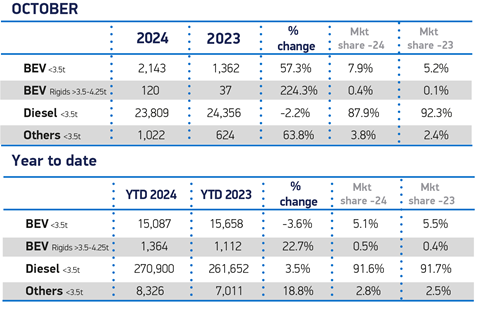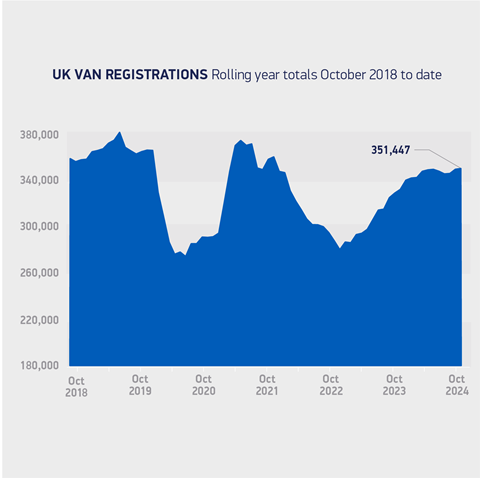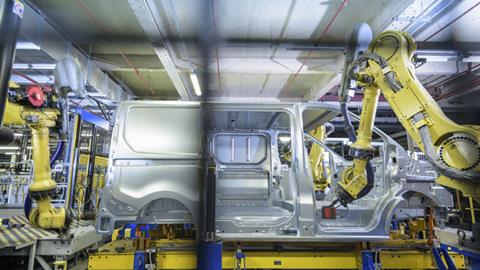Demand for new battery electric vans (BEVs) rose for the first time in five months, up 62% to 2,263 units, but fell over the year by 1.9% - accounting for just 5.6% market share, which is significantly below the 15% market share for 2024 decreed by the Zero Emission Vehicle Mandate.
These figures are revealed in the latest light commercial vehicle (LCV) registration data published by the SMMT today (5 November).
The sluggish take up of electric LCVs has prompted SMMT to renew its call for greater government support for the sector.
SMMT welcomed the extension of the Plug-in Van Grant into the next financial year, revealed in the Autumn Budget last week, but warned that further measures are urgently needed to give fleet operators confidence that going electric is commercially viable.
It added: “In particular, the lack of chargepoint infrastructure suited to the specific needs of vans presents a major barrier for fleet operators considering the switch, and must be addressed quickly.”

Overall, the number of new LCVs joining UK roads grew 2.4% in October with 26,974 new vans, pickups and 4x4s registered, representing the third consecutive month of overall market growth and the best October in three years.
The growth was driven by demand for small and medium vans, up 55.9% and 49.6% to 683 and 5,688 units respectively. Uptake of large vans, meanwhile, fell by 2.7% to 17,683 units, though these vehicles still represent the vast majority (65.6%) of the market.

Mike Hawes, SMMT chief executive, commented: “The continued growth in demand for new vans is encouraging given this sector is a barometer of the health of Britain’s businesses.
“Industry has invested huge sums delivering cutting-edge technology, including zero emission vehicles, but low demand raises serious doubt over the ability of the UK to achieve its ambitious green targets.
“There must be an urgent review of the market, regulation and support in place, else the cost will soon be felt in reduced UK investment, economic growth, jobs and decarbonisation.”

















